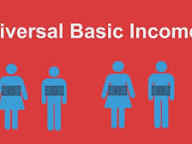
Universal Basic Income (UBI)
Universal Basic Income (UBI) is a concept that has gained attention in recent years as a potential solution to address economic inequality and provide financial security for all citizens. Here are key points to consider regarding UBI:
- Definition: UBI is a regular cash payment provided to all citizens or residents of a country, regardless of their income, employment status, or wealth. It is designed to cover basic living expenses.
- Economic Security: UBI aims to provide a safety net, ensuring that individuals have a minimum level of income to meet their basic needs, even during economic downturns or job market changes.
- Poverty Alleviation: UBI has the potential to reduce poverty by providing a guaranteed income floor. It can lift people out of poverty and reduce income inequality.
- Simplified Welfare Systems: UBI can simplify complex welfare systems by replacing various means-tested benefits with a single universal payment. This can reduce bureaucracy and administrative costs.
- Economic Stimulus: During economic crises, UBI can act as an automatic stabilizer, injecting money into the economy and supporting consumer spending.
- Funding and Cost: One of the primary challenges of UBI is funding. Determining the source of funds and the overall cost of implementing a UBI program is a complex economic and political issue.
- Work Incentives: Critics argue that UBI might disincentivize work if individuals receive a basic income without the need to seek employment. Proponents counter that it can encourage entrepreneurship, education, and creative pursuits.
- Pilot Programs: Several countries and regions have initiated pilot UBI programs to test its feasibility and impact on society. These programs provide valuable data for policymakers.
- Political Debates: UBI is a topic of ongoing political debate, with different ideological perspectives on its merits, feasibility, and potential consequences.
- Future Potential: As automation and artificial intelligence continue to impact the job market, discussions about UBI as a response to potential job displacement and income inequality are likely to continue.
In conclusion, Universal Basic Income is a concept with the potential to reshape social welfare systems and address economic challenges. However, its implementation, funding, and impact on society remain subjects of ongoing debate and experimentation in various countries.

